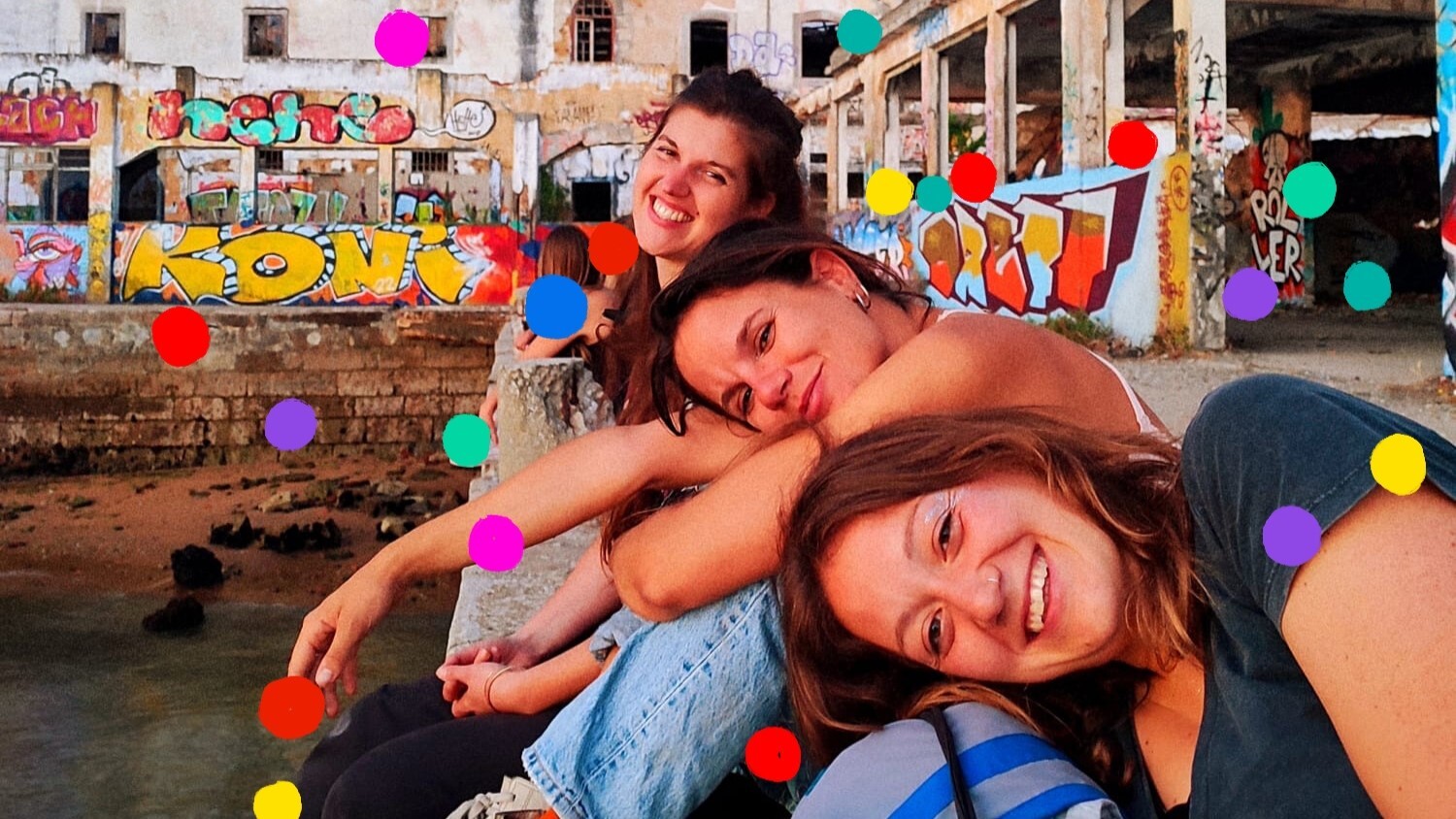‘To create a safe space for learning through colourful yet controlled chaos’
What made you want to apply for this role at CAM?
Having the chance to work with lots of different people over an extended period of time and having the freedom to experiment with different things, all against a common backdrop of visual expression and reflection on the creative process itself.
We were keen to get visitors to ZAAM: Zona de Ação Artística Mutante [Mutant Artistic Action Zone, ZAAM] thinking about our experience of the world around us and how we act or have agency over it. Our watchword for this residency is «change».
We also liked the idea of working in dialogue with the artists in the collection and discussing some of the themes that relate to CAM at this moment in time. We’re looking forward to getting our teeth into all that! Above all, this role allows us the immense privilege of talking not only to CAM, but also to its audience.
As a collective in residence, our mission has always been to create a safe space for learning through colourful yet controlled chaos, surprise, minor transgressions and questions that don’t require immediate answers.
Of course, we were also attracted by the possibility of creating this kind of space within an institution that encompasses such a wide range of artistic expression. We were thrilled at the idea of being able to work in dialogue with a garden, a city, a film, a painting, a plate of food or an architectural concept. We knew that we wouldn’t get bored during our year at ZAAM, with such a lot of experimenting to do.
What does your residency involve?
We have set up our ZAAM: Zona de Ação Artística Mutante in CAM’s learning space where we devise and share proposals for different ‘actions’ every month.
On Sundays, the ZAAM is all about dialogue with the CAM Collection, its audience, and visual expression.
We invite the public to join us in the things we like to do. We encourage them to see CAM as a space for action, in which the visitor sheds their usual role as mere spectator and is challenged instead to do and make: to use the space to collaborate and create things together with other people, based on what they see.
The very name of the ZAAM expresses this idea. Oficina Fritta has always defined itself as a collective dedicated to the mediation of visual art, and much more besides.
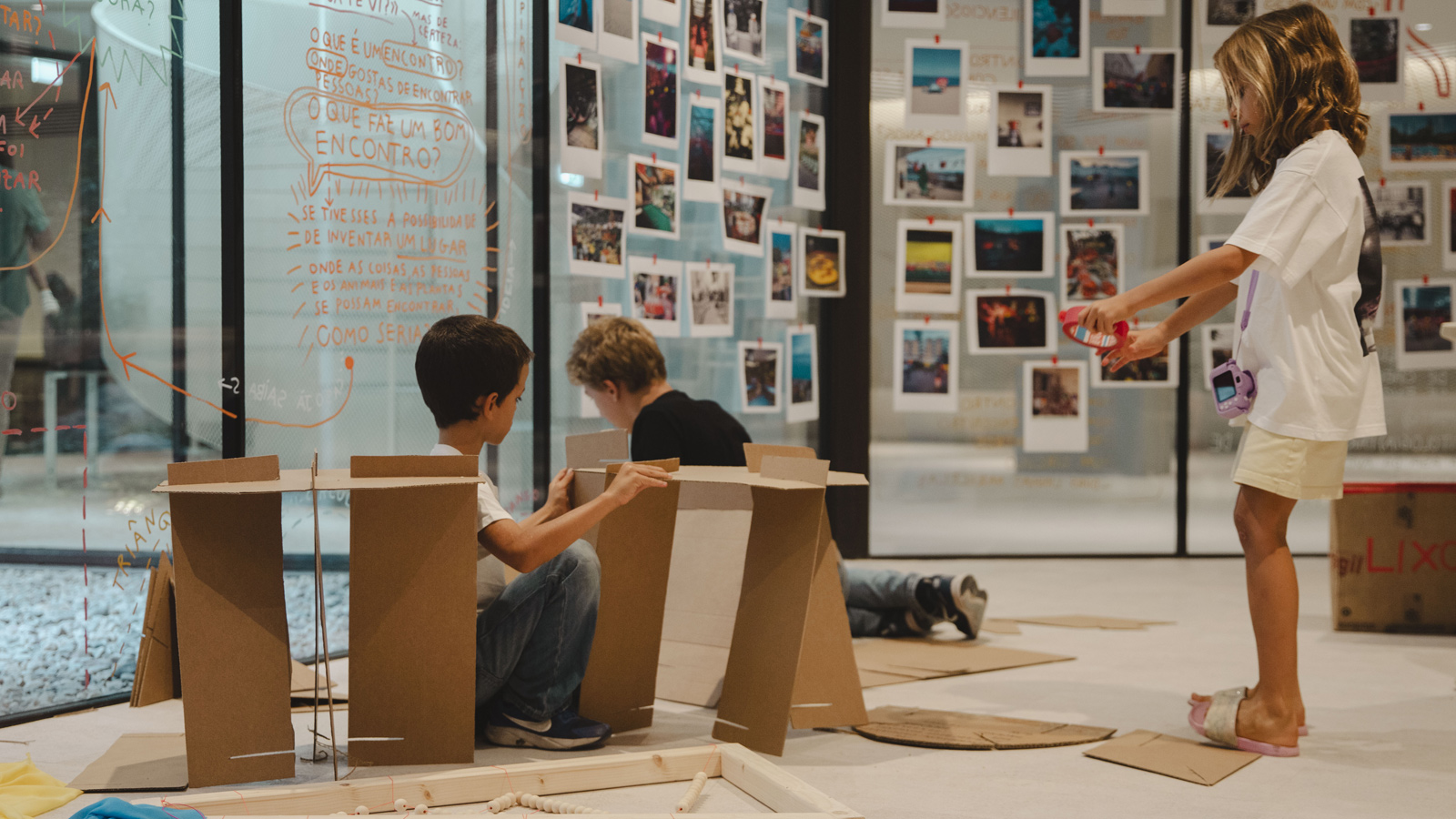
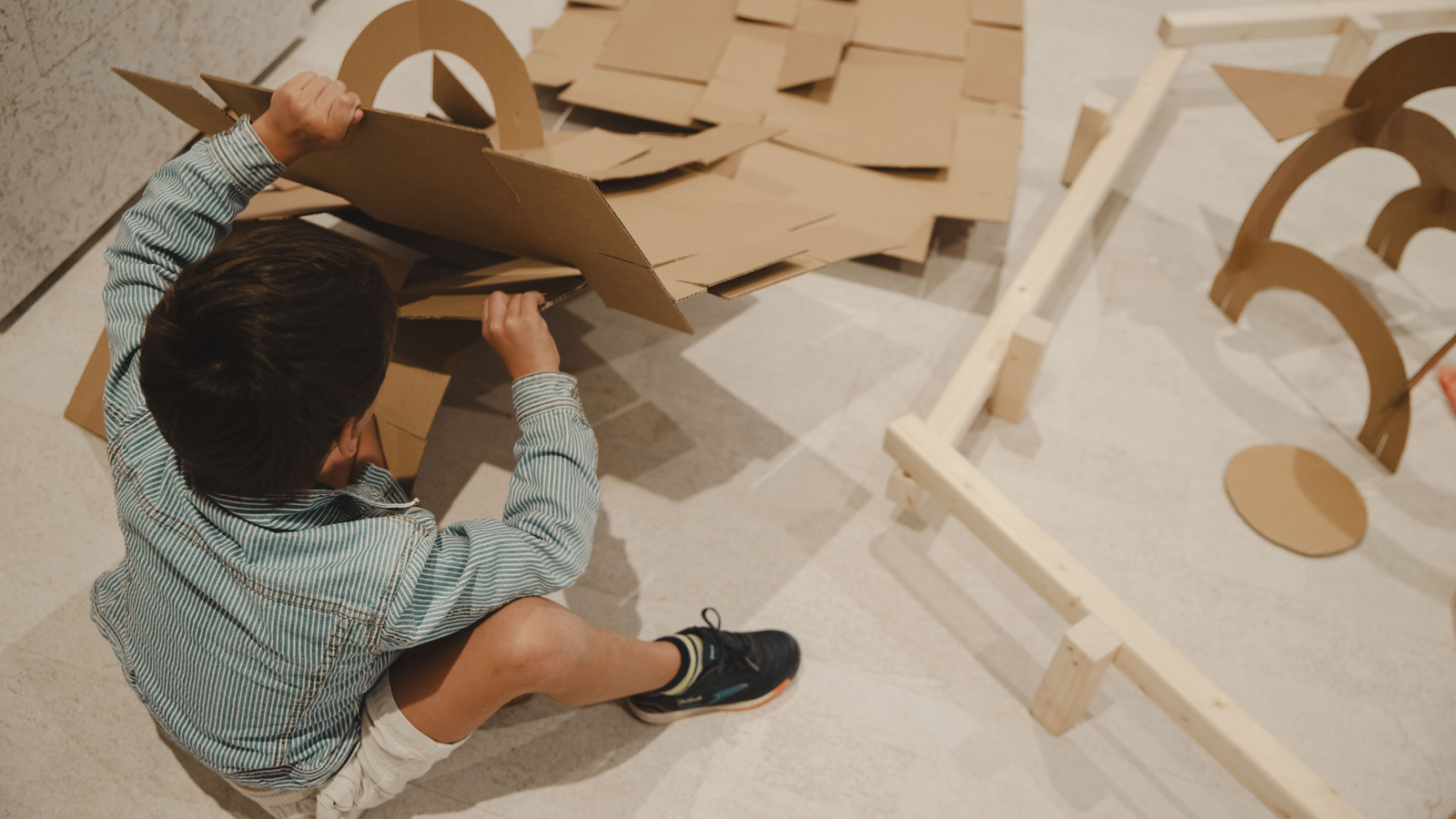
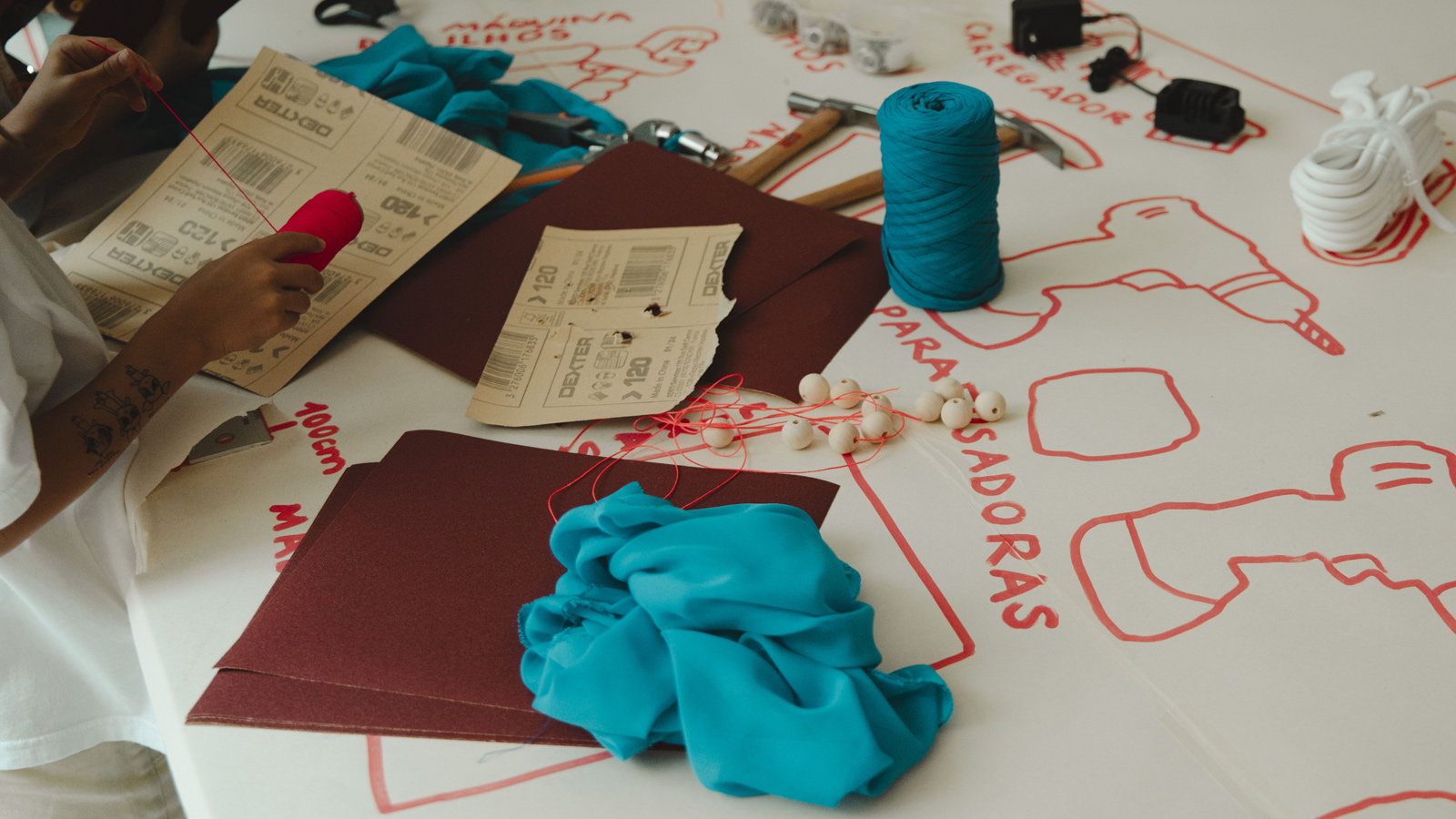
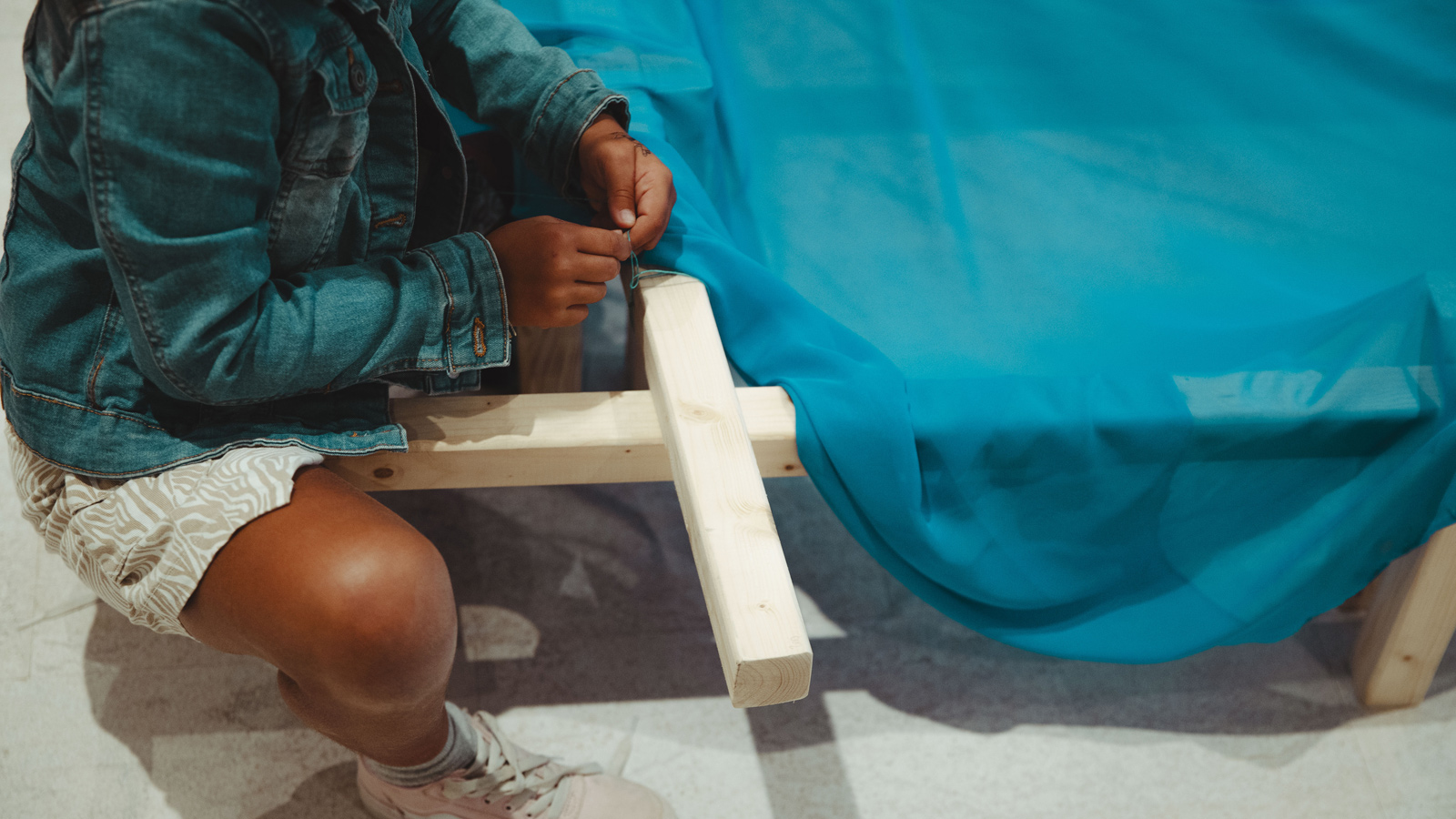
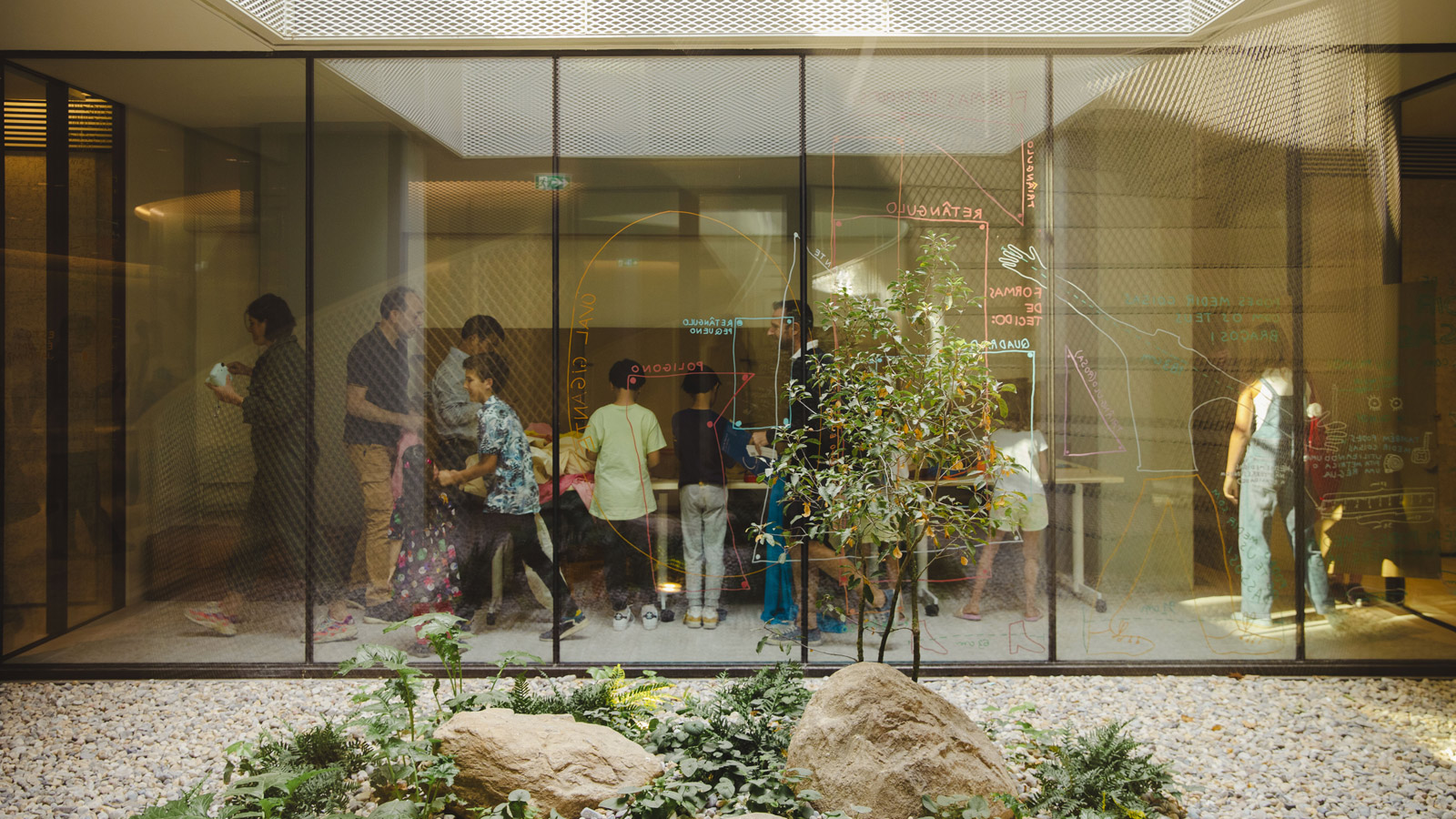
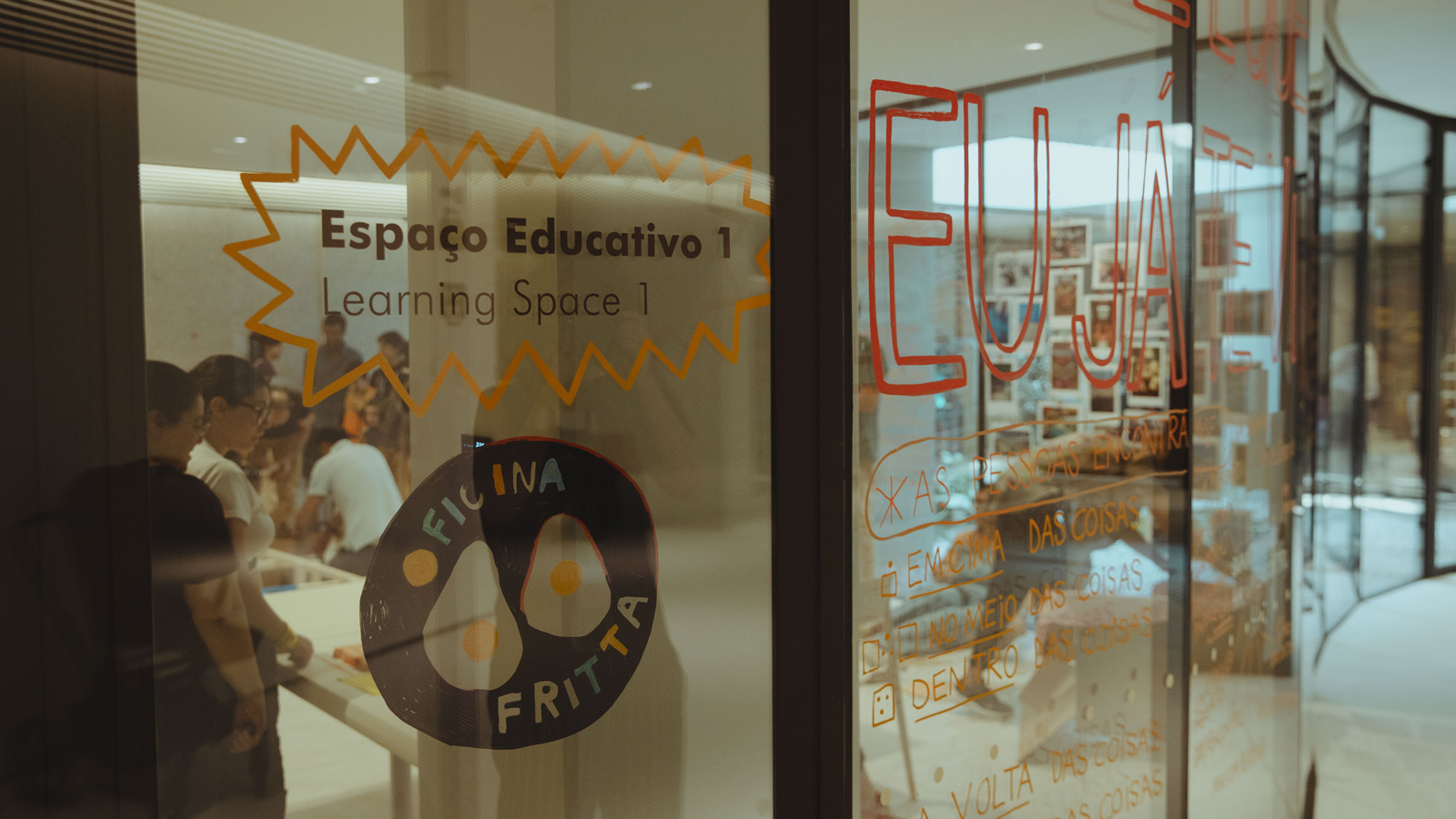
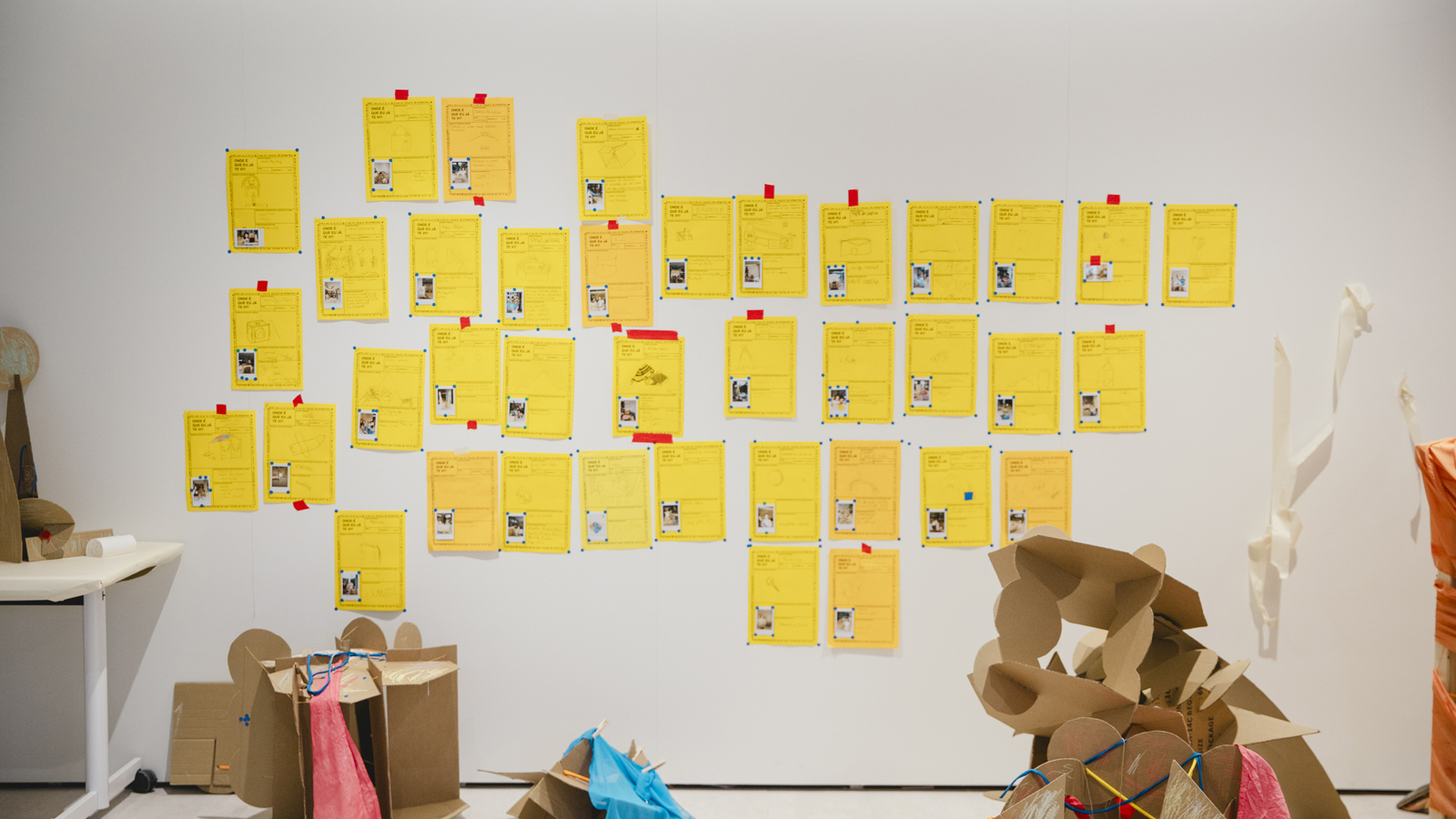
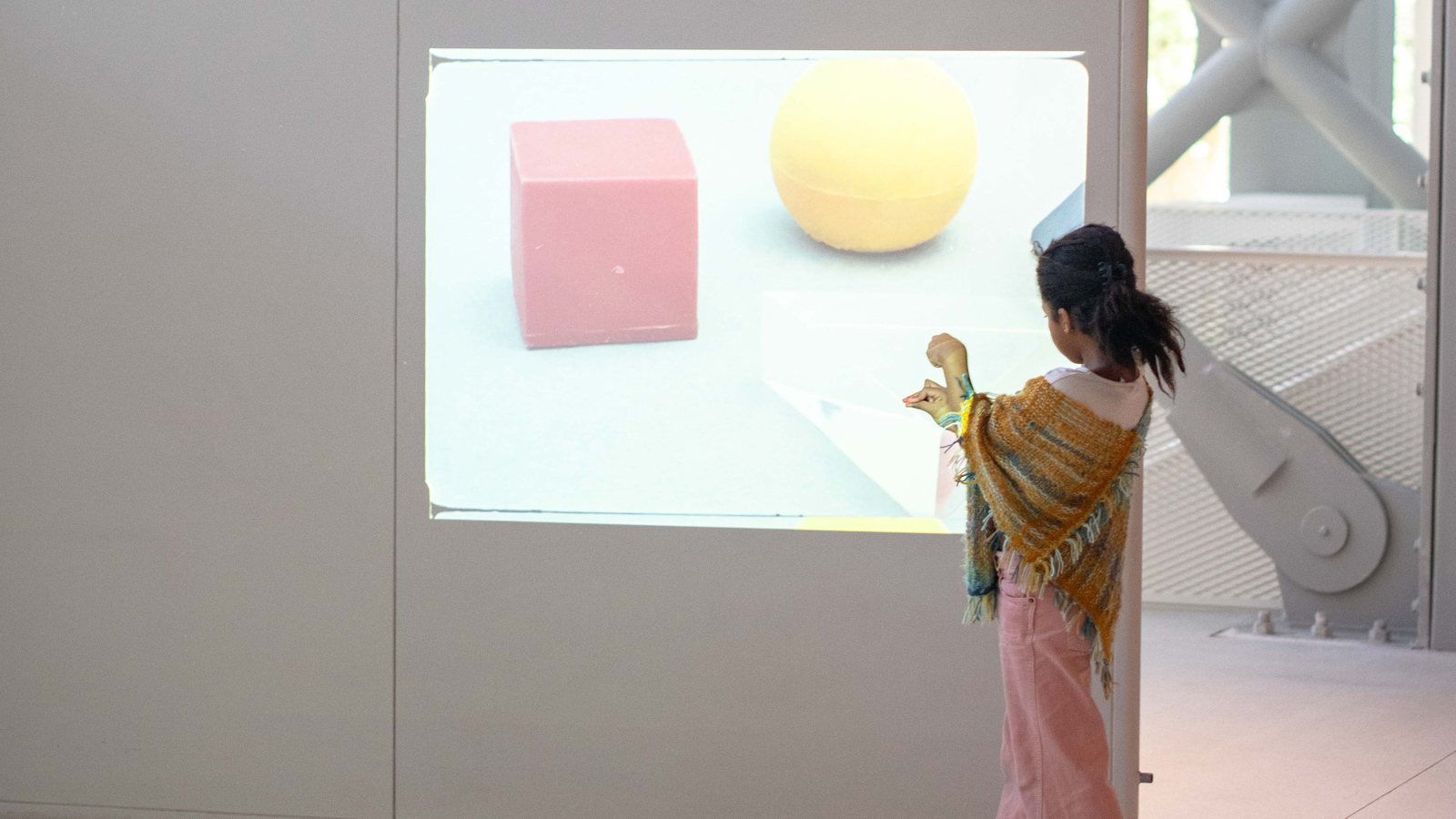
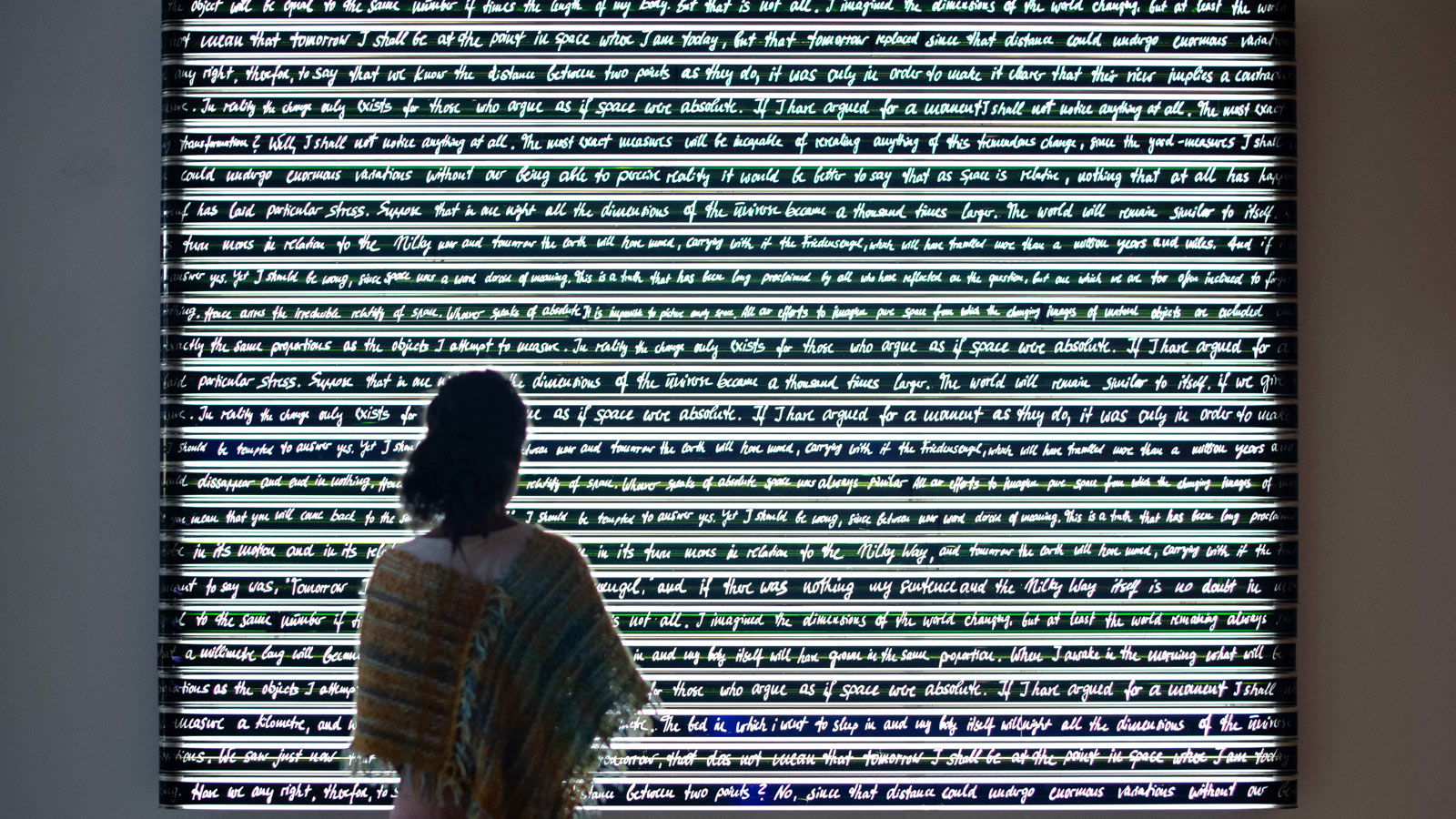
Why do you think it’s important for a centre for art to include spaces for families?
It’s about making the ‘museum’ space more accessible, open and present.
Designing spaces for families allows us to deconstruct preconceived ideas about what happens in an art centre. It becomes a space where it is possible to create special memories, surprise, inspire, relax and share tools with adults and children alike.
We want to foster a critical yet enjoyable vision of what it means to make and consume art, in a safe and informal space, where you can fail, question things without any anxiety about coming up with the right answers, and where families can get to know each other in a different setting, while doing an unusual activity.
We always try to provide experiences that are engaging, whether you’re 4 or 44, and that encourage everyone to collaborate and make their own special contribution. Nobody does anything alone at Oficina Fritta.
What exactly is the ZAAM, or Mutant Artistic Action Zone?
ZAAM is a place of unsupervised experimentation, where you can make mistakes, share knowledge and conduct experiments.
The key words here are:
How’s it all going?
The ZAAM is still fairly new, but so far we’ve had throngs of people passing through it every day. To be honest, it’s been a wild, high-adrenaline ride. A number of people have kept coming back to the ZAAM several months in a row and in different seasons, which is great to see. It’s always good to set up collaborations that last more than a day.
Do you have any new plans in the pipeline? What else can we expect?
The truth is that we don’t have any specific plans, but we do have some ideas. We’re always scoping out the lie of the land. We have a lot of freedom at CAM, but working in such a big institution and alongside so many people at once means that you can’t do absolutely everything. We’re in dialogue with the space, but we are also constantly negotiating and making compromises with it.
